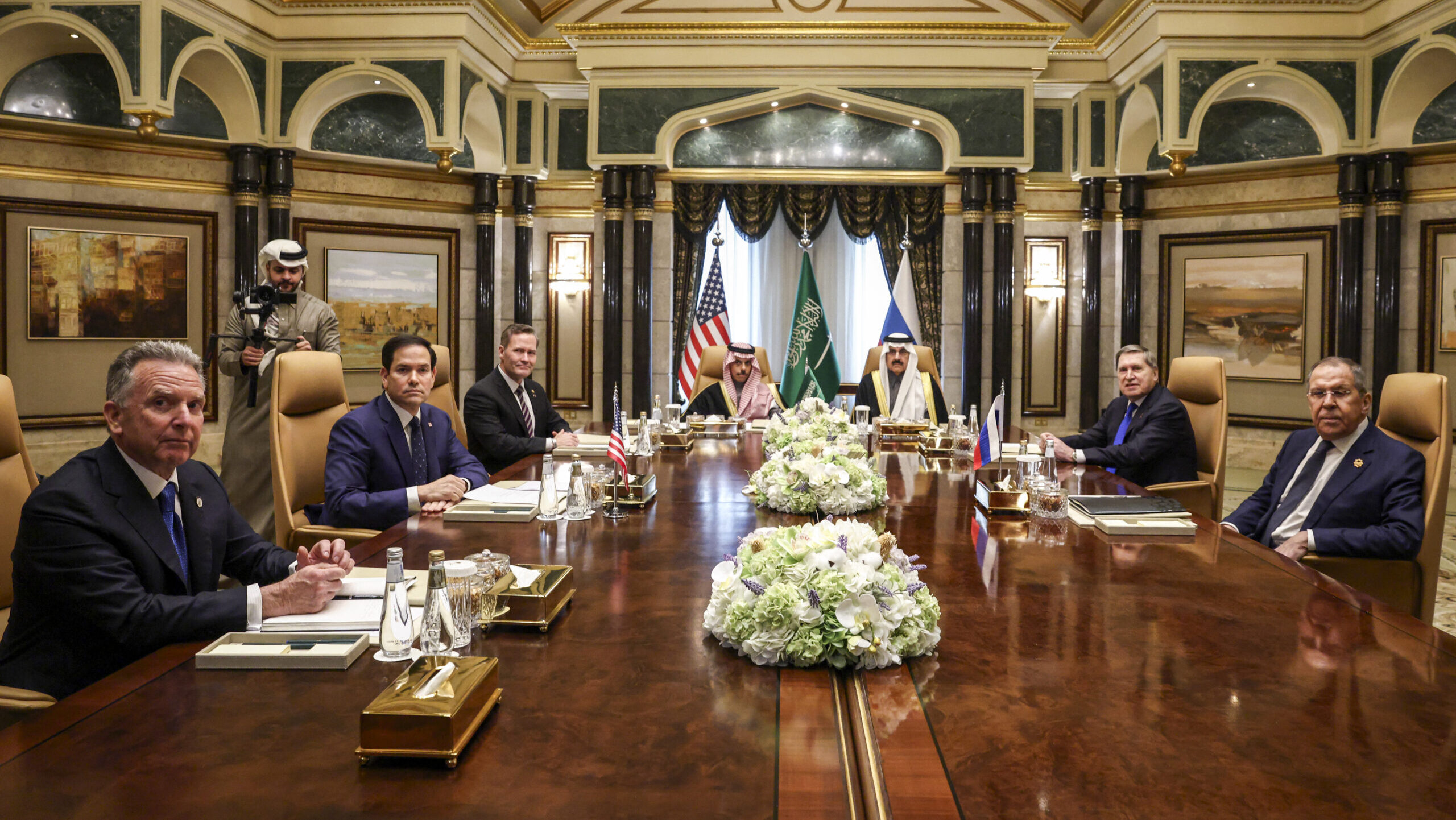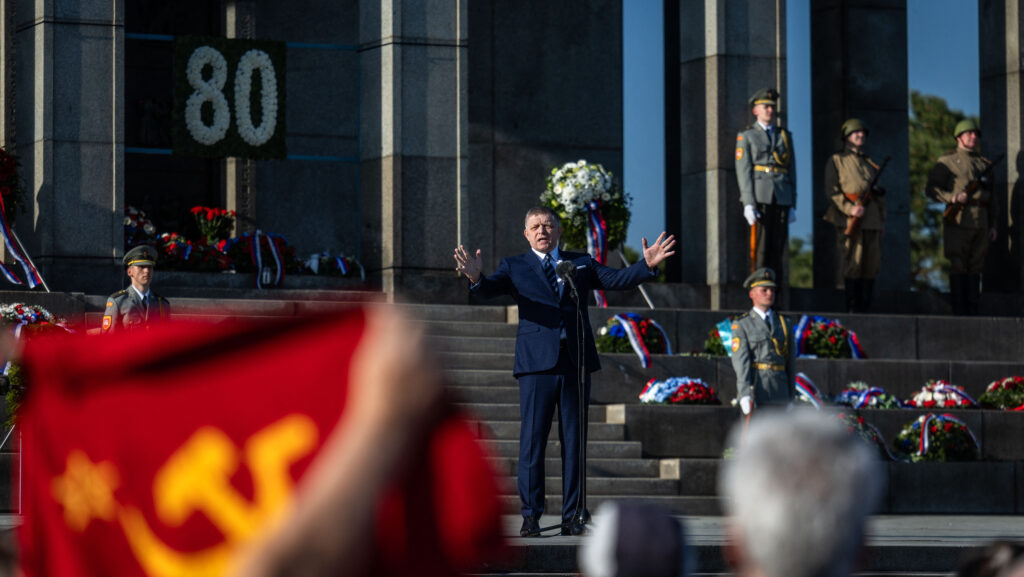The first round of US–Russia talks in Saudi Arabia concluded on Tuesday, with both sides agreeing to appoint ‘respective high-level teams to begin working on a path to ending the conflict in Ukraine as soon as possible in a way that is enduring, sustainable, and acceptable to all sides,’ according to US State Department spokesperson Tammy Bruce.
The meeting was attended by US Secretary of State Marco Rubio, National Security Advisor Mike Waltz, and Trump’s Special Envoy for the Middle East Steve Witkoff, while Russian Foreign Minister Sergei Lavrov and foreign policy advisor Yuri Ushakov represented Moscow.
Following the meeting, spokesperson Bruce issued a statement emphasizing that ‘President Trump wants to stop the killing; the United States wants peace and is using its strength in the world to bring countries together. President Trump is the only leader in the world who can get Ukraine and Russia to agree to that.’ She also noted that both sides had agreed to hold further consultations to address ‘irritants’ in their bilateral relations.
What exactly this entails remains uncertain, but some aspects of the 4.5-hour negotiations are becoming clearer—particularly regarding European involvement in the talks. Since Trump announced last Wednesday that negotiations to end the war would begin immediately, Europe has been in crisis mode, fearing exclusion from the discussions. In response, French President Emmanuel Macron convened an emergency summit in Paris on Monday, bringing together key EU and NATO members. Following the meeting, Macron called for ‘reliable security guarantees’ for Ukraine.
After the Saudi talks, Waltz pushed back against the notion that Washington had not consulted its allies, stating: ‘They are being consulted—literally almost on a daily basis—, and we will continue to do so.’
Rubio also sought to reassure the EU, stressing that for any conflict to end, ‘everyone involved in that conflict has to be okay with it.’ He stated: ‘In order to bring an end to any conflict, there have to be concessions made by all sides, but it would be wrong to predetermine those.’
He also hinted at a future role for the EU in the negotiations, noting: ‘There are other parties that have sanctions. The European Union is going to have to be at the table at some point because they have sanctions as well that have been imposed.’ He reiterated that the ultimate goal is to resolve the conflict in a manner that is ‘fair, enduring, sustainable, and acceptable to all parties involved’.
‘Discussions will inevitably involve territorial matters and security guarantees’
Waltz outlined key areas of agreement from the talks, including that any resolution to the war must be permanent and that discussions will inevitably involve territorial matters and security guarantees.
The two sides also discussed the possibility of a meeting between Trump and Putin, though no concrete details were shared.
Russian Foreign Minister Lavrov praised the meeting, highlighting that the parties had not only ‘listened but heard each other’. He further emphasized that the US–Russia talks on Ukraine would begin as soon as possible, with each side appointing representatives. Both sides also stressed the importance of peace as a key factor in unlocking economic opportunities. He added that any deployment of NATO on Ukrainian soil would be unacceptable for Russia.
Related articles:








